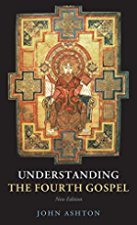 Probably most people curious enough to read a blog like this will know well enough already Richard Dawkins’ answer to the creationists’ analogy of the probability of monkeys typing the works of Shakespeare being used to debunk the idea of evolution.
Probably most people curious enough to read a blog like this will know well enough already Richard Dawkins’ answer to the creationists’ analogy of the probability of monkeys typing the works of Shakespeare being used to debunk the idea of evolution.
But for the benefit of the random reader (as remotely likely and also possible as 2 monkeys with two typewriters typing two 2 character words — don’t forget punctuation keys, spaces, capitalization, numbers, etc) who has not encountered what is probably the simplest rebuttal of all of this “works-of-Shakespeare-typed-by-a-million-monkeys-at-typewriters” analogy, here is evolutionist Richard Dawkins’ rebuttal. He kind of substitutes weasels for monkeys as the main focus of attention, and then switches their roles from actants to objects, but no matter. The point is to demonstrate something real by means of a real (i.e. legitimate) analogy, and monkeys can still be kept in there as the behind-the-scenes typists.
So if we postulate that the primary mechanism of evolution is natural selection, then we will understand that natural selection favours certain genetic configurations over others. Those particular configurations that it favours for survival will be more likely to survive than the others. This is the classical model of the theory of evolution.
So with a nod to rationalwiki here is Dawkin’s monkey (sorry, WEASEL) analogy:
So much for single-step selection of random variation. What about cumulative selection; how much more effective should this be? Very very much more effective, perhaps more so than we at first realize, although it is almost obvious when we reflect further. We again use our computer monkey, but with a crucial difference in its program. It again begins by choosing a random sequence of 28 letters, just as before:
WDLTMNLT DTJBKWIRZREZLMQCO P
It now ‘breeds from’ this random phrase. It duplicates it repeatedly, but with a certain chance of random error – ‘mutation’ – in the copying. The computer examines the mutant nonsense phrases, the ‘progeny’ of the original phrase, and chooses the one which, however slightly, most resembles the target phrase, METHINKS IT IS LIKE A WEASEL. In this instance the winning phrase of the next ‘generation’ happened to be:
WDLTMNLT DTJBSWIRZREZLMQCO P
Not an obvious improvement! But the procedure is repeated, again mutant ‘progeny’ are ‘bred from’ the phrase, and a new ‘winner’ is chosen. This goes on, generation after generation. After 10 generations, the phrase chosen for ‘breeding’ was:
MDLDMNLS ITpSWHRZREZ MECS P
After 20 generations it was:
MELDINLS IT ISWPRKE Z WECSEL
By now, the eye of faith fancies that it can see a resemblance to the target phrase. By 30 generations there can be no doubt:
METHINGS IT ISWLIKE B WECSEL
Generation 40 takes us to within one letter of the target:
METHINKS IT IS LIKE I WEASEL
And the target was finally reached in generation 43. A second run of the computer began with the phrase:
Y YVMQKZPFfXWVHGLAWFVCHQXYOPY,
passed through (again reporting only every tenth generation):
Y YVMQKSPFTXWSHLIKEFV HQYSPY
YETHINKSPITXISHLIKEFA WQYSEY
METHINKS IT ISSLIKE A WEFSEY
METHINKS IT ISBLIKE A WEASES
METHINKS IT ISJLIKE A WEASEO
METHINKS IT IS LIKE A WEASEP
and reached the target phrase in generation 64. m a third run the computer started with:
GEWRGZRPBCTPGQMCKHFDBGW ZCCF
and reached METHINKS IT IS LIKE A WEASEL in 41 generations of selective ‘breeding’.
There is a little macro or whatever at http://rationalwiki.org/wiki/Dawkins_weasel#cite_ref-1 where you can see this evolutionary process in action for yourself. One time I tried it I almost thought I saw only 7 iterations (i.e. generations) to complete the process. But obviously that is the sort of “luck” that defies anything we might expect in the real world. So try it again and see how many times it takes more than 70 iterations to achieve the goal!
I think this scientific response to the creationist analogy has more persuasive power than any efforts by befuddled theologians (e.g. James McGrath on Exploring Our Matrix) who are offended enough to modify the analogy to have monkeys use mere 4 key typewriters!
The Dawkins’ explanation is from his book The Blind Watchmaker
Like this:
Like Loading...







 The Gospel of John is notorious for its several awkward transitions and these have led a number of scholars to argue that the present Gospel we know is quite different from what must have been its first edition. A
The Gospel of John is notorious for its several awkward transitions and these have led a number of scholars to argue that the present Gospel we know is quite different from what must have been its first edition. A